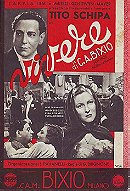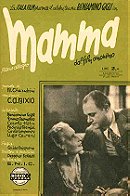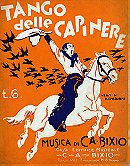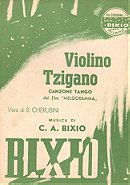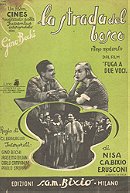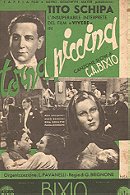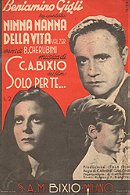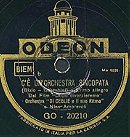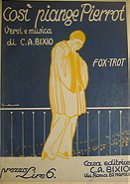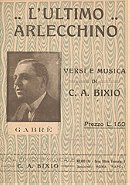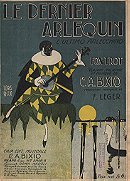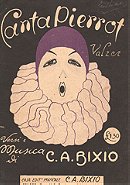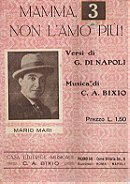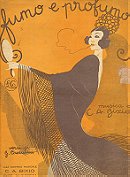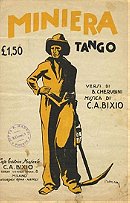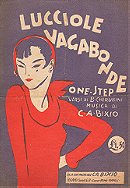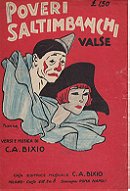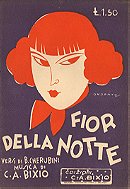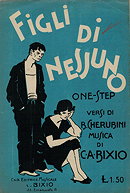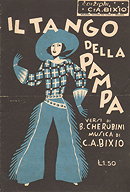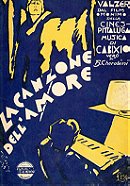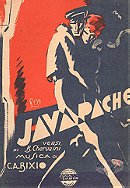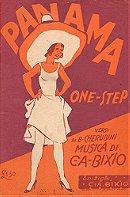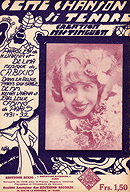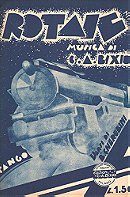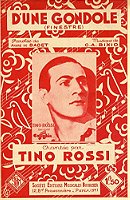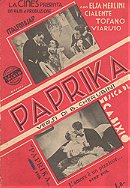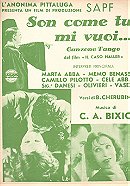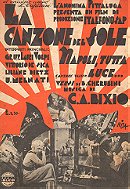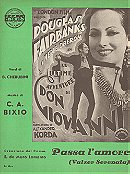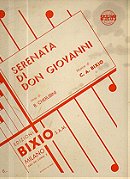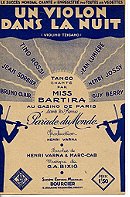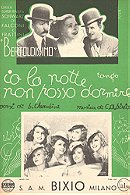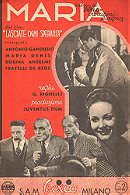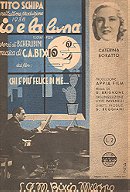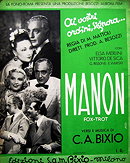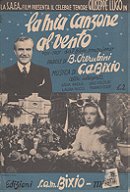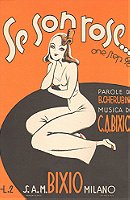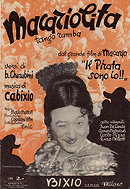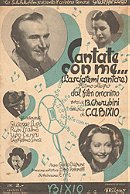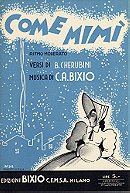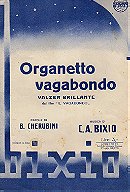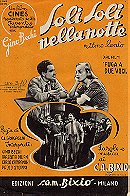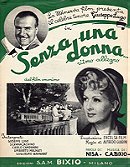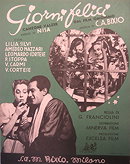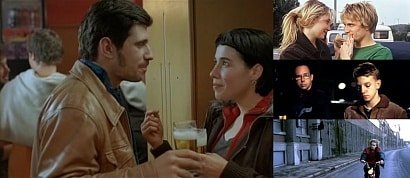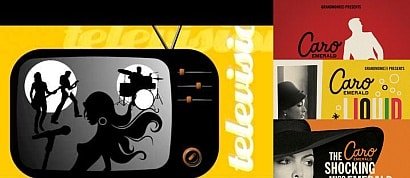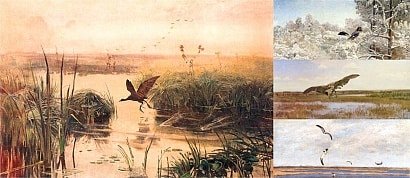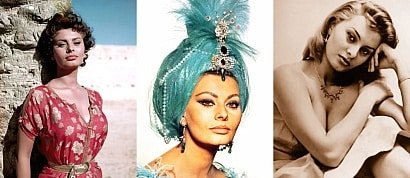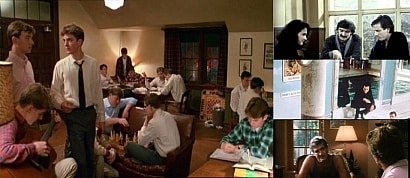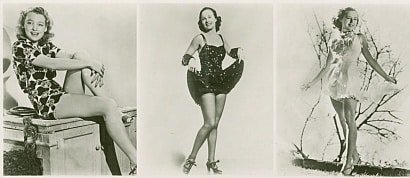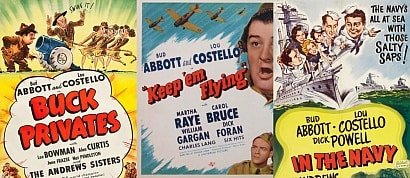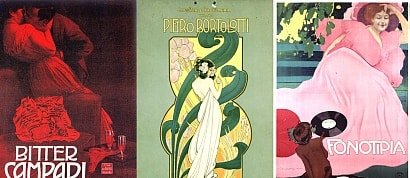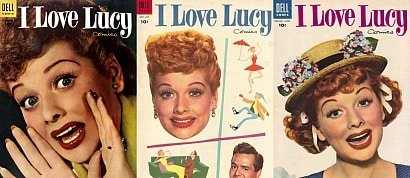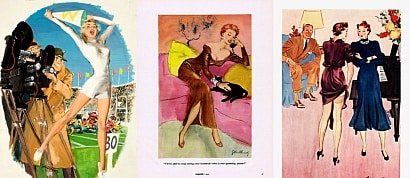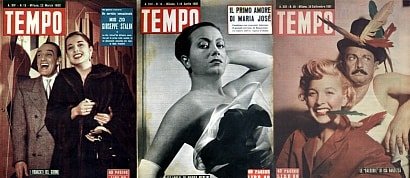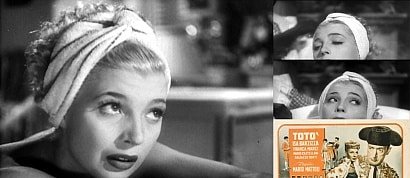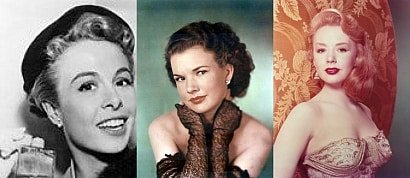Cesare Andrea Bixio's Songs
Sort by:
Showing 1-50 of 86
Rating:
List Type:
 Add items to section
Add items to section
Songs composed by Cesare Andrea Bixio

Parlami D'Amore Mariù (Tell Me About Love Little Mary), from Mario Camerini's comedy Gli Uomini Che Mascalzoni! (What Scoundrels Men Are!, 1932), starring Vittorio De Sica and Lia Franca.
Parlami D'Amore Mariù is considered as the most popular Italian song of the 1930s.


Above and in the following pictures: Vittorio De Sica and Lia Franca in Mario Camerini's comedy Gli Uomini Che Mascalzoni!.



Vittorio De Sica sings Parlami D'Amore Mariù.

Vivere (Living), from Guido Brignone's drama with the same title (1937), starring Tito Schipa and Caterina Boratto.
Tito Schipa sings Vivere.

Mamma (Mum), from Guido Brignone's drama with the same title (1940), starring Beniamino Gigli and Emma Gramatica.

Cover of French language music sheet.
Beniamino Gigli sings Mamma.

Violino Tzigano (Tzigane Violin), from Giorgio Simonelli's drama Melodramma (1934) starring Elsa Merlini and Renato Cialente.
Carlo Buti sings Violino Tzigano.

La Strada del Bosco (The Road Of The Woods), from Carlo Ludovico Bragaglia's comedy Fuga A Due Voci (1943) starring Gino Bechi and Irasema Dilian.

Torna Piccina (Come Back Little Baby), from Guido Brignone's drama Vivere (1937) starring Tito Schipa and Caterina Boratto.
Tito Schipa sings Torna Piccina.

Ninna nanna della vita (Lullaby of the life), from Carmine Gallone's drama Solo Per Te (1938) starring Beniamino Gigli and Maria Cebotari.
Beniamino Gigli sings Ninna Nanna Della Vita.
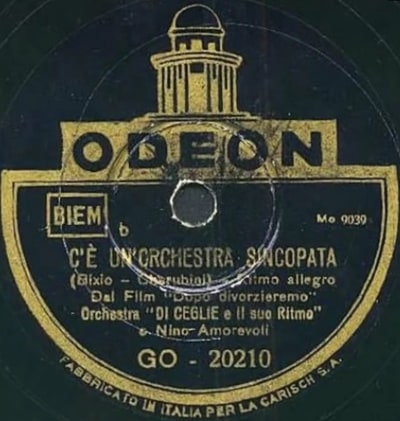
C'è Un'Orchestra Sincopata (There's A Syncopated Orchestra) from Nunzio Malasomma's comedy Dopo Divorzieremo (1941), starring Amedeo Nazzari and Lilia Silvi.
Trio Lescano sings C'è Un'Orchestra Sincopata.

La Famiglia Canterina (The Singing Family), 1941.
Ernesto Bonino and Trio Lescano sing La Famiglia Canterina, with conductor Pippo Barzizza and Orchestra Cetra.

L'Ultimo Arlecchino (The Last Harlequin), 1923.
Gabrè (real name: Aurelio Cimato) was an Italian revue star of the 1910s and of the 1920s.

Lucciole Vagabonde (Wandering Fireflies), 1927.
In Italian, lucciola is also used as informal for prostitute.

From Gennaro Righelli's drama La Canzone Dell'Amore (The Song Of Love, 1930), the first Italian talking movie, starring Dria Paola and Isa Pola.

Cette Chanson Si Tendre (This Song So Tender), from Henri Varna and Earl Leslie's revue show Paris Qui Brille (1931) starring Mistinguett.

Paprika, from Carl Boese's comedy with the same title (1933), starring Elsa Merlini and Renato Cialente.

Son Come Tu Mi Vuoi (I Am As You Want Me), from Alessandro Blasetti's mystery Il Caso Haller (1933), starring Marta Abba and Memo Benassi.

Napoli, Tutta Luce (Naples, All Light), from Max Neufeld's comedy La Canzone Del Sole (1933), starring Giacomo Lauri Volpi, Vittorio De Sica and Lillian Dietz.

Passa L'Amore (Love Passes), from the Italian edition of Alexander Korda's The Private Life Of Don Juan (1934), starring Douglas Fairbanks and Merle Oberon.

Serenata Di Don Giovanni (Don Juan Serenade), from the Italian edition of Alexander Korda's The Private Life Of Don Juan (1934), starring Douglas Fairbanks and Merle Oberon.

Io La Notte Non Posso Dormire (I Can't Sleep In The Night), from Dino Falconi and Angelo Frattini's revue show Bertoldissimo (1936), starring Guido and Giorgio De Rege, and the Schwarz theatre company.

Maria, from Gennaro Righelli's comedy Lasciate Ogni Speranza (1937), starring Antonio Gandusio and Maria Denis.

Io E La Luna (Me And The Moon), from Guido Brignone's drama Chi E' Più Felice Di Me (1938) starring Tito Schipa and Caterina Boratto.

Manon, from Mario Mattoli's comedy Ai Vostri Ordini, Signora... (1939), starring Elsa Merlini and Vittorio De Sica.

La Mia Canzone Al Vento (My Song To The Wind), from Guido Brignone's comedy with the same title (1939), starring Giuseppe Lugo and Dria Paola.

Macariolita, from Mario Mattoli's comedy Il Pirata Sono Io (1940), starring Macario, Juan de Landa and Dora Bini.

Cantate Con Me... (Sing With Me...), from Guido Brignone's comedy with the same title (1940), starring Giuseppe Lugo and Rubi D'Alma.

Come Mimì (Like Mimì), 1941.
The title refers to the main character of Giacomo Puccini's opera La Bohème (1896).

Organetto Vagabondo (Wandering Accordion), from Carlo Borghesio's comedy Il Vagabondo (1941), starring Macario and Lilly Granado.

La Bisbetica Domata, from Ferdinando Maria Poggioli's comedy with the same title (1942), starring Lilia Silvi and Amedeo Nazzari.
La Bisbetica Domata is the Italian title of William Shakespeare's The Taming Of The Shrew.

Soli Soli Nella Notte (We Alone In The Night), from Carlo Ludovico Bragaglia's comedy Fuga A Due Voci (1943), starring Gino Bechi and Irasema Dilian.

Senza Una Donna (Without A Woman), from Alfredo Guarini's comedy with the same title (1943), starring Giuseppe Lugo and Silvana Iachino.
Load more items (36 more in this list)
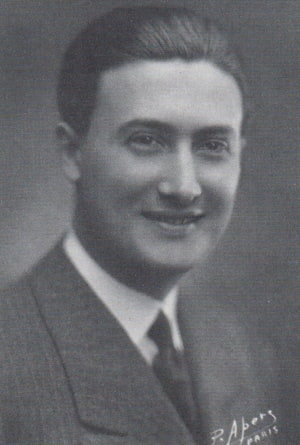
Cesare Andrea Bixio
Selected songs composed or published by Italian composer and music publisher Cesare Andrea Bixio.

Cesare Andrea Bixio established his own music publishing company C.A.Bixio in Naples in 1920. In the same year, he started to work as a composer for revue star Gabrè and he gained great success in his hometown. In 1923, Cesare Andrea Bixio moved to Milan where he established a new music publishing company (with the same name) and where he became popular as a composer.

Bixio Cherubini.
In 1927, Cesare Andrea Bixio started his collaboration with songwriter Bixio Cherubini (from the song Miniera, Mine).

Mistinguett
After the huge success of Il Tango Delle Capinere (The Blackcaps' Tango, 1928), he was called by French revue star Mistinguett to compose the songs for her new show Paris Qui Brille, that was staged in 1931.

Lys Gauty
In Paris, Cesare Andrea Bixio also collaborated with cabaret music hall Folies Bergère and composed songs for popular singer Lys Gauty.

In 1930, Cesare Andrea Bixio composed the title song and the music for Gennaro Righelli's drama La Canzone Dell'Amore (The Song Of Love), the first Italian talking movie.

Cover of songbook Le Canzoni Di Bixio-Prima Raccolta (Songs of Bixio-First Collection) published by Messaggerie Musicali (Milan) in 1937.
Cesare Andrea Bixio is considered as the most popular Italian pop music composer of the 1930s, the 1940s and the 1950s.
See also:

Late 1930s/Early 1940s Italian Radio

Late 1940s/Early 1950s Italian Radio

Late 1930s/Early 1940s Italian Decò Comedies

1930s/1940s/1950s/1960s Italian Musical Movies

Claudio Villa's Comedies

Pietro Garinei And Sandro Giovannini's 1950s Shows

Pietro Garinei And Sandro Giovannini's 1960s Shows
Added to
People who voted for this also voted for
Anautix' favourite Russian Films
Anautix' favourite Historical Movies
Favorite Images of Lizards #2
Jean-Pierre Dardenne,Luc Dardenne - movies
Favorite Images IV
Favorite Caro Emerald Songs
Favorite Images of Hotels
Polish painters.
Sophia Loren
Anautix' favourite British Movies (since 1990)
Favorite Images of Hot Air Balloons
Chess in the cinema part 5
U.S.M.C., Semper Fidelis
Animal World, part 5
Cigarette Cards: Glamour Girls (1939)
Bud Abbott And Lou Costello's Military Comedies
Marcello Dudovich' Ads_1
Dell's "I Love Lucy Comics"_1954/1955
Gilbert Bundy's Gallery
"Tempo"_4 (Italian Magazine)
Isa Barzizza's Comedies
Actresses And Models_17_1930s, 1940s, 1950s, 1960s
 Login
Login

 0
0
 0
0
 0
0
